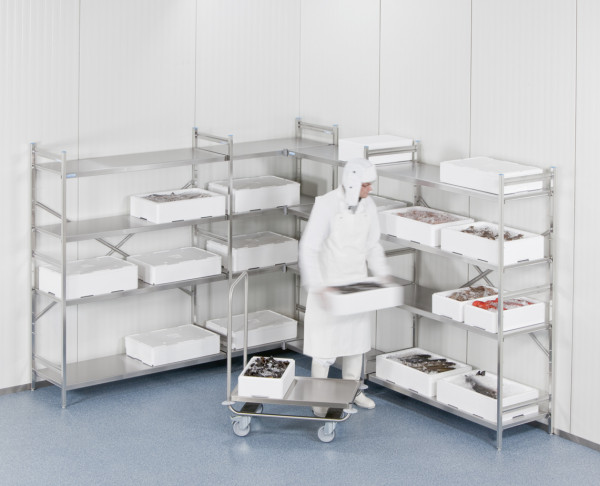As a leading specialist in sterile goods logistics for both the catering and medical industries, Hupfer knows the importance of maintaining a sterile environment; this is why we promote this to our customers.
Everyone has to abide by the strict hygiene regulations in catering, as obligatory practices across catering establishments in the EU.
HACCP, short for Hazard Analysis and Critical Control Points, instructs set regulations as well as advice on improving existing hygiene standards. Those who do not adhere to the guidelines can receive some harsh critique, which could lead to the closure of the eatery.
Responsibility of catering staff
It is the responsibility of the catering staff to implement strict hygiene regulations - those who serve food for other people have to prepare dishes in a hygienic environment. All members of the kitchen should observe their own cleanliness, as well as those who they work with.
Even with these hygienic practices in place, there are still a high number of cases of illness caused by bacteria, viruses or parasites reported from kitchens in catering establishments across Europe.
What do you need to do?
Hupfer provides a range of products that are ideal for use within catering establishments across the foodservice industry.
Our range of logistics prevent decontamination and are efficient, hygienic and manufactured from the highest quality materials. It is important that catering staff use products like these, that are resistant to spreading bacterias.
But, it is also necessary for staff to be operating a strict cleaning routine. Work surfaces are the areas most susceptible to contamination. This is where stringent cleaning is significant.
Using stainless steel surfaces and equipment is obligatory but also the easiest way of promoting a hygienic setting.
Hupfer’s recommendations
Designing a commercial kitchen requires serious thought and the quality of equipment should always be the number one priority. Better quality equipment is easier to clean and maintain and will save on costs at a later date.
Choosing shelving and kitchen apparatus within a higher hygiene class also guarantees better hygiene and safety. In particular, kitchen furniture with smoother stainless steel surfaces is less likely to retain bacteria in joints and holes.

